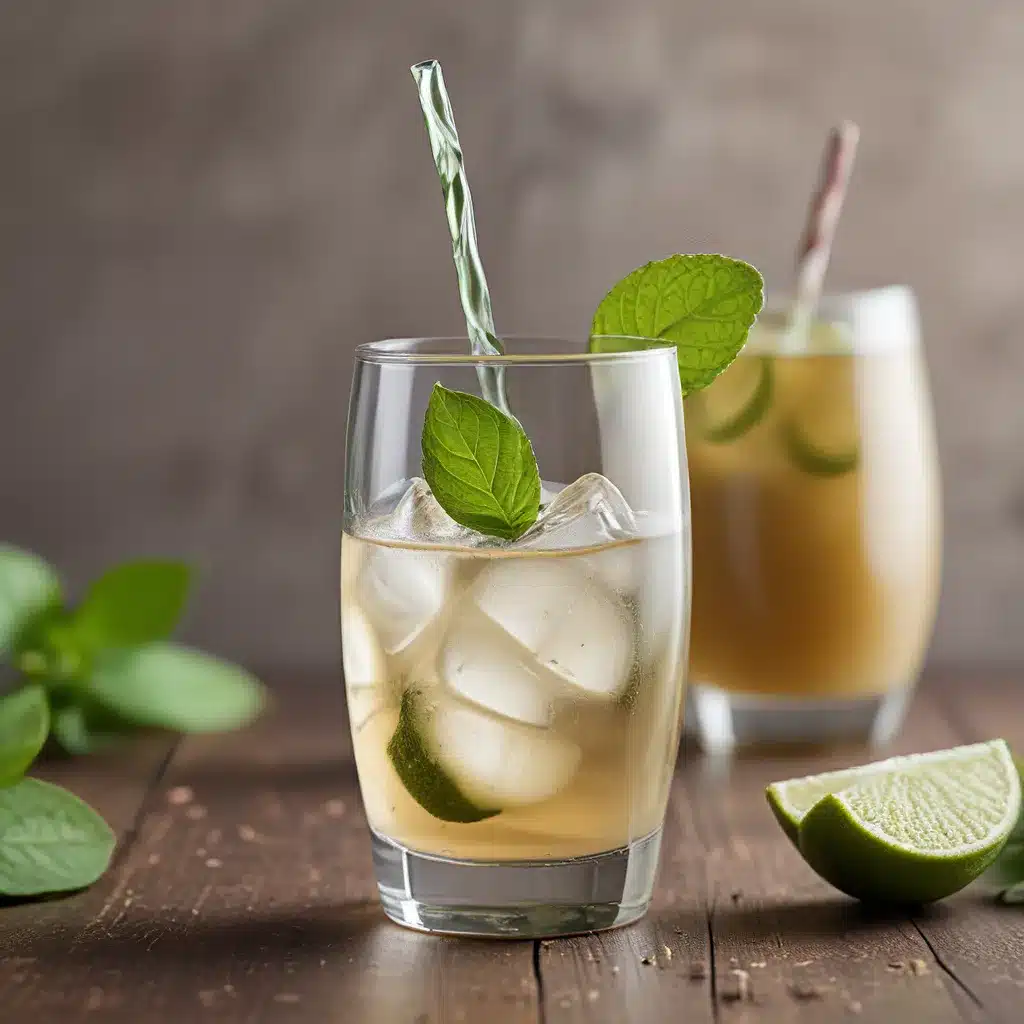
As a self-proclaimed “seltzer enthusiast,” I’ll admit I’ve had my fair share of fizzy, carbonated beverages over the years. The refreshing, tongue-tingling sensation of a cold sparkling drink on a hot summer day is hard to beat. But as I’ve become more conscious of my environmental impact, I can’t help but wonder – is my beloved bubbly habit doing more harm than good?
It’s a valid concern, to be sure. The beverage industry’s reliance on plastic bottles and aluminum cans has long been a major contributor to environmental pollution. And with climate change looming ever-closer, it’s high time we start rethinking our hydration habits. But what if I told you there’s a better way? A way to quench your thirst while simultaneously reducing your carbon footprint? Enter the world of eco-friendly beverage solutions.
Kicking the Plastic Bottle Habit
Let’s start by addressing the elephant in the room – plastic bottled water. It’s no secret that this convenience-driven trend has been an environmental disaster. In fact, a recent analysis found that the total carbon footprint of a single can of Coke is around 0.4 pounds of CO2 – and the packaging accounted for the biggest chunk of that. Yikes.
Thankfully, innovative companies like Drop Water are stepping up to the plate with game-changing solutions. Their water refill stations and smart vending machines are making it easier than ever to ditch the plastic and embrace a more sustainable sipping experience.
The concept is brilliantly simple: you bring your own reusable bottle or container, choose from a variety of refreshing flavors, and let the machine do the rest. No more lugging home heavy cases of plastic bottles or dealing with the hassle of recycling. Just personalized hydration at your fingertips, with the added bonus of reducing waste.
But Drop Water isn’t just about providing a convenient alternative to bottled water. They’re also laser-focused on improving the environmental impact of their products. Their compostable cartons are a far cry from the non-biodegradable plastic we’ve become accustomed to, and they’re constantly experimenting with new materials and technologies to make their offerings as eco-friendly as possible.
Rethinking the Home Carbonation Game
Now, what about that beloved seltzer habit of mine? Surely there’s no way to make that more sustainable, right? Wrong. Enter the world of home carbonation devices.
As it turns out, the CO2 used in these machines is actually a byproduct of industrial processes like natural gas and coal-fired ammonia plants, as well as large-scale ethanol production. So, in a sense, we’re just “borrowing” the gas and then releasing it back into the atmosphere when we crack open our bubbly beverages.
But the real game-changer is the reusable bottles and cartridges that come with these home carbonation systems. Instead of generating a mountain of disposable plastic bottles or cans, you’re using the same durable container over and over again. And when it comes time to refill the CO2 cartridge, you can simply return it to the manufacturer for a swap.
Sure, there’s still an environmental impact associated with the transportation of those cartridges. But when you compare it to the emissions generated by shipping bottled water or soda across the country (or even the world), the difference is staggering. In fact, one analysis found that the total carbon footprint of a can of Coke is about 0.4 pounds of CO2 – a relatively small amount when you consider the much larger impacts of things like driving and air travel.
Brewing Up a Sustainable Future
But the eco-friendly beverage revolution doesn’t stop there. Homebrewing has also emerged as a surprisingly sustainable alternative to store-bought beers and sodas. By fermenting your own carbonated beverages, you’re not only reducing packaging waste, but you’re also cutting down on the emissions associated with transportation and distribution.
And let’s not forget about the health benefits of homebrewing. When you have full control over the ingredients, you can ensure your drinks are free of artificial sweeteners, preservatives, and other questionable additives. It’s a win-win for your taste buds and the planet.
Of course, homebrewing isn’t for everyone. It requires a bit more time and effort than simply popping open a can or bottle. But for those willing to put in the work, the rewards can be truly satisfying – both in terms of the final product and the environmental impact.
Investing in the Future of Hydration
As I delve deeper into the world of eco-friendly beverage solutions, I can’t help but feel a sense of excitement and optimism. The innovations happening in this space are nothing short of remarkable, and it’s clear that sustainable hydration is the future.
Companies like Drop Water are leading the charge, with their cutting-edge technology and unwavering commitment to reducing waste. And the rise of home carbonation devices and homebrewing has shown that individuals can also play a significant role in creating a more sustainable future for our thirst-quenching habits.
But the journey doesn’t end here. Ongoing research and evolving technologies suggest that there may be even more groundbreaking solutions on the horizon. Some experts believe that we may one day be able to recapture the CO2 we exhale and use it to bubble our own soda water, for instance. The possibilities are truly endless.
So, the next time you reach for a refreshing beverage, I encourage you to think about the impact your choice has on the environment. Chances are, there’s a more sustainable alternative out there waiting to be discovered. And who knows – you might just find that it’s even more satisfying than the conventional options.
After all, when it comes to quenching our thirst, why settle for anything less than a planet-friendly experience? The future of hydration is sustainable, and it’s time we all start sipping our way to a greener tomorrow.

